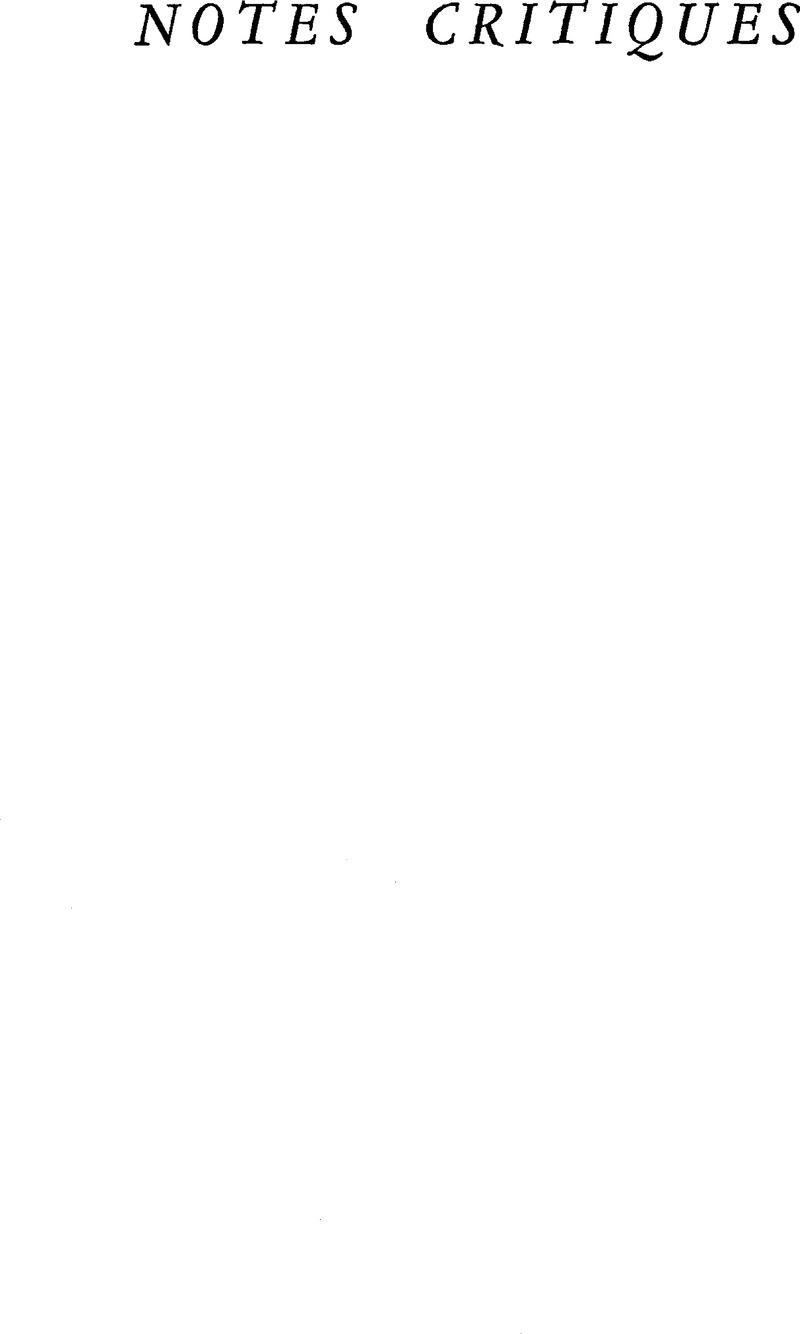Published online by Cambridge University Press: 28 July 2009

* Worsley, , The Trumpet Shall Sound (London, 1957)Google Scholar; Burridge, K. O. L., Mambu (London 1960)Google Scholar; Jarvif, I. C., Theories of Cargo Cults: A Critical Analysis, Oceania, XXXIV (1963–1964), 1–31 and 108–136CrossRefGoogle Scholar; Talmon, Y., The Pursuit of Millennium, European Journal of Sociology, III (1962), 125–158CrossRefGoogle Scholar; Thrupp, S., Millennial dreams in action (The Hague 1962)Google Scholar; Lawrence, Peter, Road belong Cargo (Manchester 1965).Google Scholar
(1) Road belong Cargo (Manchester 1965).Google Scholar
(2) Review of Lawrence, , op. cit.Google Scholar, in Man, LXV (1965), 96–97.Google Scholar
(3) The reference is presumably to the fact that the cults are almost inexplicable to those who believe in studying ritual rather than its justifying belief.
(4) The reference is presumably to the fact that cults are inexplicable to those who believe social mechanisms are simple and predictable.
(5) The reference is presumably to F. E. Williams; the thesis that he was significantly Platonist was put forward by G. Lienhardt in a BBC Third Programme Talk, “Plato and the Vailala Madness”, broadcast on 16–2–65.
(6) It is not clear to whom reference is here made.
(7) The reference is presumably to my works: the book The Revolution in Anthropology (London 1964)Google Scholar, especially chapters II–V; and Theories of Cargo Cults: A Critical Analysis, Oceania, XXXIV (1963–1964), 1–31 and 108–136.Google Scholar
(8) Stanner, W.E.H., The South Seas in Transition (Sydney 1953).Google Scholar
(9) In a London doctoral thesis (1961) and the book already mentioned. The same point with reference to millenarianism in general is made by Yonina Talmon in The Pursuit of the Millennium. European Journal of Sociology, III (1962), 125–148.Google Scholar
(10) It is true that the objections to history are now being combatted within anthropology, especially by Evans-Prit-chard and his pupils. However, he has by no means won the day yet.
(11) “Theories of Cargo Cults: A Critical Analysis”, op. cit, passim.
(12) Mambu (London 1960).Google Scholar
(13) See the unappreciative review by Keesing, in Man, LXI (1961), p. 148.Google Scholar
(14) See The Revolution in Anthropology, op. cit. p. 149 sqq.
(15) Contact began in 1643, but intensive contact and administration began only in 1884 under the Germans.
(16) Gellner, E., Thought and Change (London 1965), esp. pp. 15–20.Google Scholar
(17) The Trumpet Shall Sound (London 1957), pp. 266–272.Google Scholar
(18) Lawrence, , op. cit. p. 241.Google Scholar
(19) Some philosophical difficulties with this have been raised by Winch, P.in Understanding a Primitive Society, American, Philosophical Quarterly, VII (1964), pp. 307–324Google Scholar. But see my criticisms in Understanding versus Explaining a Primitive Society forthcoming.
(20) Reform is tinkering with the framework, revolution completely changing it, see Lawrence, , op. cit. p. 256, n. 2.Google Scholar
(21) Op. cit. p. 255.
(22) Lawrence, , op. cit. p. 265.Google Scholar
(23) On this point see the paper by Agassi, J. and myself, “The Problem of the Rationality of Magic” forthcoming in Brit. J. of Sociol. (1967).Google Scholar
(24) Millennial Dreams in Action (The Hague 1962).Google Scholar
(25) The Religions of the Oppressed (London 1963).Google Scholar
(26) Op. cit. pp. 136–138.
(27) Mair, L., The Pursuit of the Millennium in Melanesia, Brit. J. Sociol., IX (1958), 175–182.CrossRefGoogle Scholar
* I am grateful to Joseph Agassi of Boston University, for critical discussion of the first draft of this paper.